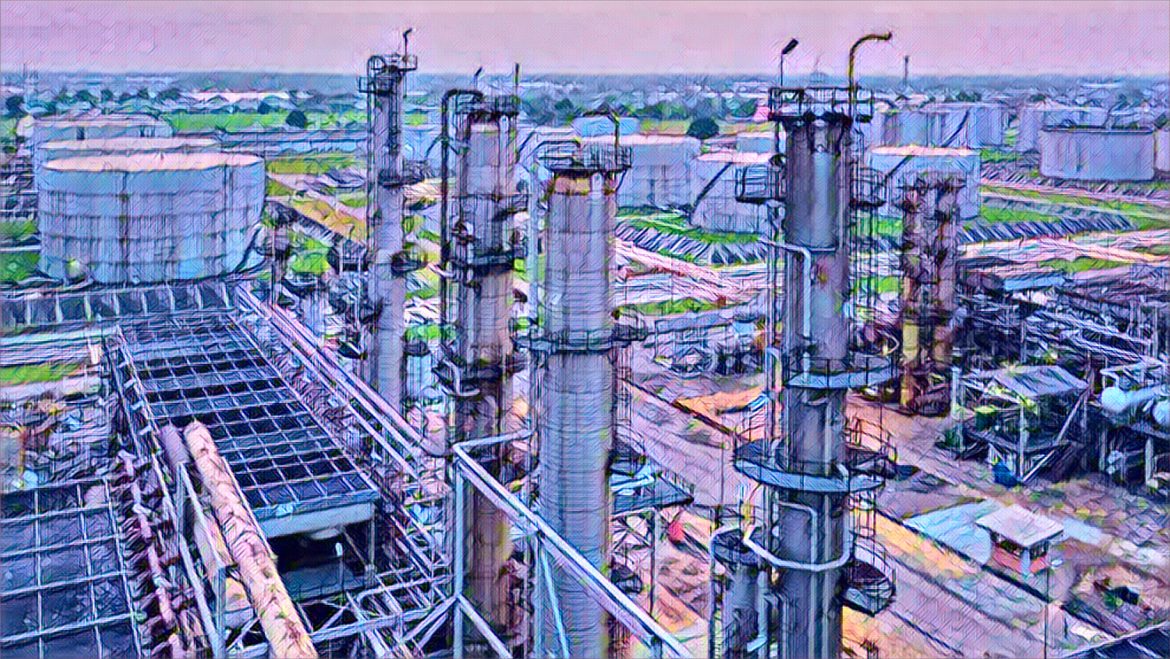The Nigerian government has announced plans to hand over the Port Harcourt Refinery, one of the largest in Africa, to private operators. This is part of its efforts to revive the country’s ailing oil sector and boost energy security.
A Milestone for Nigeria’s Oil Industry
The Port Harcourt Refinery, located in the oil-rich Niger Delta region, has been in operation since 1965. It has a capacity of 210,000 barrels per day, making it the biggest of the four refineries in Nigeria. However, the refinery has been plagued by years of neglect, mismanagement, and corruption, resulting in frequent breakdowns and low output.
In March 2021, the Nigerian government approved a GBP 1.08 billion ($1.5 billion) budget for the renovation and modernization of the refinery complex. The project, which is expected to be completed by 2023, aims to restore the refinery to its optimal performance and efficiency.
On Monday, the Nigerian National Petroleum Company Limited (NNPCL), the state-owned oil firm, said it had concluded plans to hand over the refinery to private operators after the completion of the rehabilitation work. The NNPCL said it was seeking to engage reputable and credible operations and maintenance companies to operate and maintain the refinery.
The NNPCL said the contract scope would cover refinery business processes such as production planning, operations execution, monitoring, reporting, optimization, maintenance, health and safety, environmental management, and minor projects.
The NNPCL also said that interested companies must demonstrate a minimum average annual turnover of at least $2 billion USD for the financial years ending 2019, 2020, 2021, and 2022 respectively.
A Step Towards Energy Security
The move to privatize the Port Harcourt Refinery is seen as a step towards achieving energy security and self-reliance for Nigeria, Africa’s largest economy and oil producer. Nigeria has been importing most of its refined petroleum products from abroad, despite having abundant crude oil reserves. This has exposed the country to the volatility of the global oil market and increased its fuel subsidy burden.
By handing over the refinery to private operators, the Nigerian government hopes to reduce its dependence on imported fuel, save costs, create jobs, and attract foreign investment. The government also hopes to improve the quality and availability of refined products for domestic consumption and export.
The privatization of the Port Harcourt Refinery is also in line with the government’s broader plan to reform the oil and gas sector, which accounts for about 10% of the country’s GDP and 90% of its foreign exchange earnings. The government has been working on passing the Petroleum Industry Bill, a long-awaited legislation that aims to overhaul the legal and regulatory framework of the sector, enhance transparency and accountability, and ensure environmental and social sustainability.
The Port Harcourt Refinery is not the only refinery project that is expected to transform Nigeria’s oil industry. The Dangote Refinery, a privately-owned mega refinery being built by Africa’s richest man, Aliko Dangote, is also nearing completion. The refinery, which is located near Lagos, Nigeria’s commercial hub, will have a capacity of 650,000 barrels per day, making it the largest single-train refinery in the world.
The Dangote Refinery, which is scheduled to start operations in 2023, will produce a range of refined products, including gasoline, diesel, jet fuel, kerosene, and polypropylene. The refinery will also have a fertilizer plant and a petrochemical complex. The refinery is expected to create thousands of direct and indirect jobs, boost Nigeria’s GDP, and generate foreign exchange.
With these two refinery projects, Nigeria hopes to become a net exporter of refined petroleum products, rather than a net importer. This will not only enhance the country’s energy security, but also its economic development and regional influence. Nigeria hopes to leverage its oil wealth to diversify its economy, reduce poverty, and improve the living standards of its 200 million people.
Source: Punch


